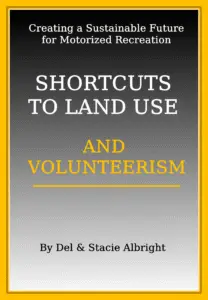Less Debate, More Decisions: Turning Talk Into Action
Debate is a word that evokes a range of meanings. Do you ever feel like our government—and sometimes even our local groups—are drowning in endless debates with few real outcomes? Democracy is a beautiful system, but let’s face it: it often thrives on discussion, deliberation, and yes, jaw-jacking. The upside is that every voice can be heard. The downside is that without direction and focus, all that talking can delay or even derail the decisions we need. People who get caught up in endless debates and “quacking” are prone to dissappear from volunteer efforts. Too much is just too much – and wasting time of a volunteer is the assured way to lose a good helper.
So, the real question becomes: how do we keep debates productive and turn them into action?
The Value of Debate
Debate is not only necessary; it’s the foundation of democracy. Whether in Congress, your local board of supervisors, or your off-road club, healthy debate ensures that everyone has a seat at the table and that decisions aren’t made in a vacuum. Without it, we edge toward dictatorship—and none of us want that.
But here’s the catch: debate should be about exchanging facts, perspectives, and ideas. The trouble starts when it slips into arguments—those heated disputes that get personal and emotional. Arguments rarely lead to progress; debates, when handled well, can.
Why Arguments Derail Progress
When emotions take over, effectiveness disappears. If you’re so focused on winning the fight that you lose sight of the bigger picture, you’ve already lost the influence you hoped to gain. Arguments divide; debates can unite.
That’s why it’s critical to manage not just what you say, but how you say it. Staying calm, factual, and focused keeps you in the debate zone and out of the argument trap.
Five Ways to Move From Debate to Decision
1. Accept That Debate is Part of the Process
Every healthy organization—government or recreation club—needs debate. It’s how decisions get shaped. But once all the cards are on the table, the goal is to move forward, not circle endlessly.
2. Arm Yourself With Facts and Figures
Facts matter. If you’re asking for a grant for your trail maintenance program, don’t just say it’s important—show it. How many volunteer hours? How many miles of trail improved? Hard numbers are nearly impossible to ignore, and they keep the discussion grounded.
3. Stay in Control of Your Emotions
Don’t let others drag you into the argument zone. As my granddad used to say, keep the high ground. A calm, measured response rooted in facts always wins out over heated words.
One of my favorite techniques is to carry a 5×7 card of bullet points. When debate heats up, I stay grounded by returning to those key facts again and again. It keeps me focused, clear, and effective.
4. Learn Facilitation and Meeting Skills
Good facilitation is a secret weapon. By guiding the flow of discussion, you can help steer debates toward action. Workshops, books, and training (like my Recreational Leadership Training Course) can equip you with these tools.
5. Think Globally, Act Locally
Never underestimate the ripple effect of local debates. Every small win or loss in your club or community has the potential to impact broader recreation policy. Sharing successes and lessons learned helps all of us.
Turning Talk Into Action
At the end of the day, debate is a privilege of freedom—something to fight for and cherish. But progress requires more than just talk. It requires discipline, facts, patience, and the ability to guide conversations toward decisions.
By applying these strategies, you can help ensure that debates stay productive, decisions get made, and your voice carries weight in shaping the future.
Less debate. More decisions. That’s how we keep moving forward.
LEARN more about volunteerism, debate, landuse, and human interactions in my book on Amazon.


